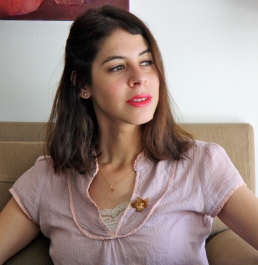I recently had the pleasure of being asked to be a guest on the childfree online forum in Israel called, “Women Who Don’t Want Children.” As part of this experience, I had the opportunity to meet Orna Donath, an author of a recently released book, Making a Choice: Being Childfree in Israel. I interviewed her about her book and being childfree in Israel.
How did you come to write Making a Choice?
The book is based on research I did for my Master’s degree. In 2004, as I was nearing the end of my Masters degree in Sociology and Anthropology, I was required to choose an issue for my thesis. Within a few life-changing seconds, it became crystal clear to me that my thesis had to be an exploration of whether I was the only person in Israel who doesn’t want children. In those days, I had the impression that no one mentioned the unmentionable-that it was possible to choose a life without children. In hindsight, I realized this impression was false.
For the next three years, I conducted qualitative research with the goal of giving voice to Israeli women and men who don’t want to be parents. I conducted in-depth interviews with heterosexual childfree couples, and content analyses from the Women Who Don’t Want Children forum. It was the first time this kind of research had been done in Israel.
In Hebrew, the book title is Mimeni Vahalaa, which is an idiom with three meanings regarding the subject of not having children in Israel. All together they capture most of the ideas in the book: 1) a child is a symbol of continuity with his parents and the society, 2) a child is something that the women and men in the book are not interested in, and 3) having/not having a child in Israel is not perceived as a personal decision; it is perceived as a social/public one.
What were some of your findings?
From the data I learned that childfree people in Israel are a heterogeneous group, from their characteristics to the motivations for choosing a life without children. A core motivation that was obvious to many research participants but totally unfathomable and unacceptable by the Israeli public at large is the lack of desire to be a parent. Contrary to widespread belief that stipulates that all humans share a biological nature, and that women in particular have a maternal “instinct”, many of the participants in my research talked about a personal nature which does not include parenting.
Participants also spoke of rational considerations that accompany their internal certainty, such as: the importance of having the freedom to manage one’s time, money, and partnership (if there is one), the disinclination to take on the heavy responsibility involved in child-raising, placing a higher value on chosen families as opposed to blood relations, the unwillingness to bring additional people to the world, and many more.
Are there any kind of statistics on the number of childfree in Israel?
To date there are no numbers or percentages of non-parents by choice in Israel. When it comes to research in this area, there is a lot that needs to be done.
Part II of my interview with Orna is here (and an update since it initially posted)
Orna is currently a Ph.D. student in sociology and anthropology at Tel Aviv University, Israel. She also does volunteer work as chairwoman in one of the rape crisis centers in Israel. She has published the article: “Pro-Natalism and its ‘Cracks’: Narratives of Reproduction and Childfree Lifestyles in Israel”, Israeli Sociology, 2009/2010, Vol. 11, Issue 2, Pp. 417-439 (in Hebrew).
Making a Choice: Being Childfree in Israel was published by Miskal – Yedioth Ahronot Books and Migdarim/Hakibutz Hameohad (in Hebrew).






Thank you for posting this. I’m awaiting childfree perspectives from Lebanon, Turkey, and Egypt! I shared this with an Israeli friend of mine and while she’s not childfree, she really wants to see CF life from an Israeli perspective. Great interview Laura! 🙂
Manos–thanks–stay tuned for part 2 with Orna and another perspective from the woman who runs the forum names Anat. The cultural perspectives involved in this choice are of great interest to me. If anyone knows people who live in any of these countries or others, please write me! I am going to Brazil and Argentina later this year and as part of it want to talk to local cf. If anyone knows Anyone who is cf in these countries, I want to hear from you! I was interviewed for a couple of magazines in Argentina last year and one called the cf choice “revolutionary”!